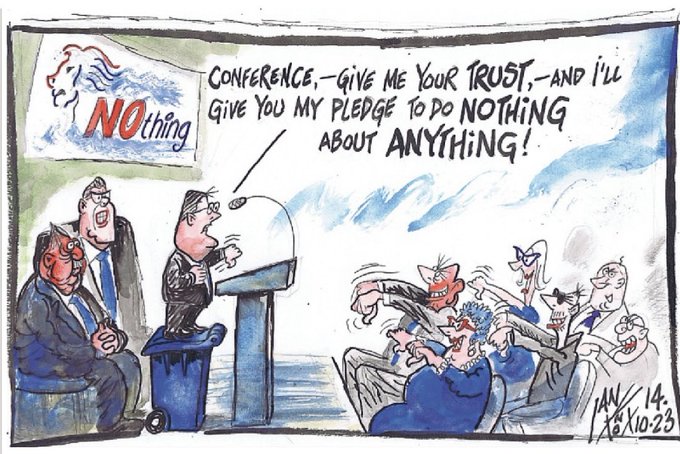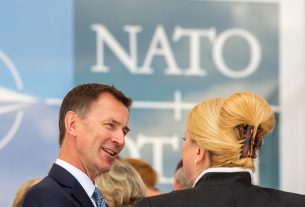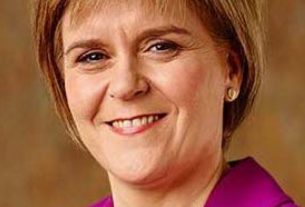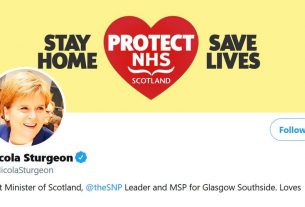Jeffrey Donaldson’s leader’s address at the DUP conference bore all the platitudes one would expect: passionate support for the union and strenuous opposition to a border poll. Yet, the DUP leader laid the groundwork for a possible return to power-sharing, albeit without indicating a timeframe. The party has kept the doors to Stormont shut for the last 18 months, rejecting many of the details of the Windsor Framework. His party continues to seek changes to the latest attempt at breaking the deadlock. Speaking to delegates, Donaldson said:
“Today, I can report that we are making progress, but there remains more work to do.
“I am hopeful that remaining concerns can be addressed as quickly as possible.”
But the party appears to have accepted that it must display some flexibility. In a somewhat unusual tone, the DUP leader spoke of his support for devolved government:
“Time and again, Westminster has imposed laws upon us that are not in tune with the needs or wishes of the people of Northern Ireland,” he said.
“You cannot, on the one hand, repeatedly condemn successive governments for letting us down and then argue with credibility that we are better off ruled directly by those who do not really understand what makes this place tick.”
In reference to the Northern Irish Protocol, he told the audience that his party had “confronted the realities and exposed the flaws”.
The party still seeks amendments to the Windsor Framework to copperfasten the province’s position within the United Kingdom. He told delegates:
“This party has a proven track record of saying ‘yes’ and leading from the front when it’s right to do so.
“Equally, we will not be afraid to say ‘no’ if we conclude that what is on offer does not adequately deal with our fundamental concerns and is not in the best long-term interests of our place in the union.”
While the DUP conference did not respond with rapturous applause, Donaldson’s speech may be the signal London, Dublin, and Brussels had been waiting for before trying to restore the Assembly again.
Donaldson was not alone in making the case for a return to power-sharing. Deputy DUP leader and MP Gavin Robinson said:
“Our ability to shape our place within the UK, amongst ourselves here, in Northern Ireland, is a strength.
“And be in no doubt, those who jump on every bandwagon to self-defeatingly dismiss the concept of devolved government do our cause no favours.”
Carla Lockhart, MP for Upper Bann, sounded a similar note:
“Decisions taken in the coming days will determine the direction of Northern Ireland for future generations. The time for unionism to stand together is now.”
DUP seeking ‘seismic’ offer from government to return to Stormont
Against the backdrop of ongoing negotiations between the UK government and the DUP, the party last month indicated that it would require a seismic offer from the British government for the party to return to the Assembly.
Speaking to the BBC a month ago, MP Edwin Poots said:
“I think that we need to see something seismic coming from Downing Street, and it’s going to take something significant to make that happen.
“I very much want it to happen. However, what has been on the table heretofore is nowhere near adequate to bring the DUP back into the room.”
Earlier this month, Irish PM Leo Varadkar told reporters that he had been briefed on the progress of the talks between the DUP and the British government by Rishi Sunak. He spoke of a potential window of opportunity to reach a consensus in the near future.
“Prime Minister Sunak gave me a briefing on the talks and contacts that they’re having with the DUP at the moment,” he said.
“They’re ongoing. He didn’t go into the detail of those but very much said that they were bilateral discussions between the DUP and the UK government and that he hoped that they were moving towards a conclusion and that that would be a positive conclusion. But that remains to be seen.”




